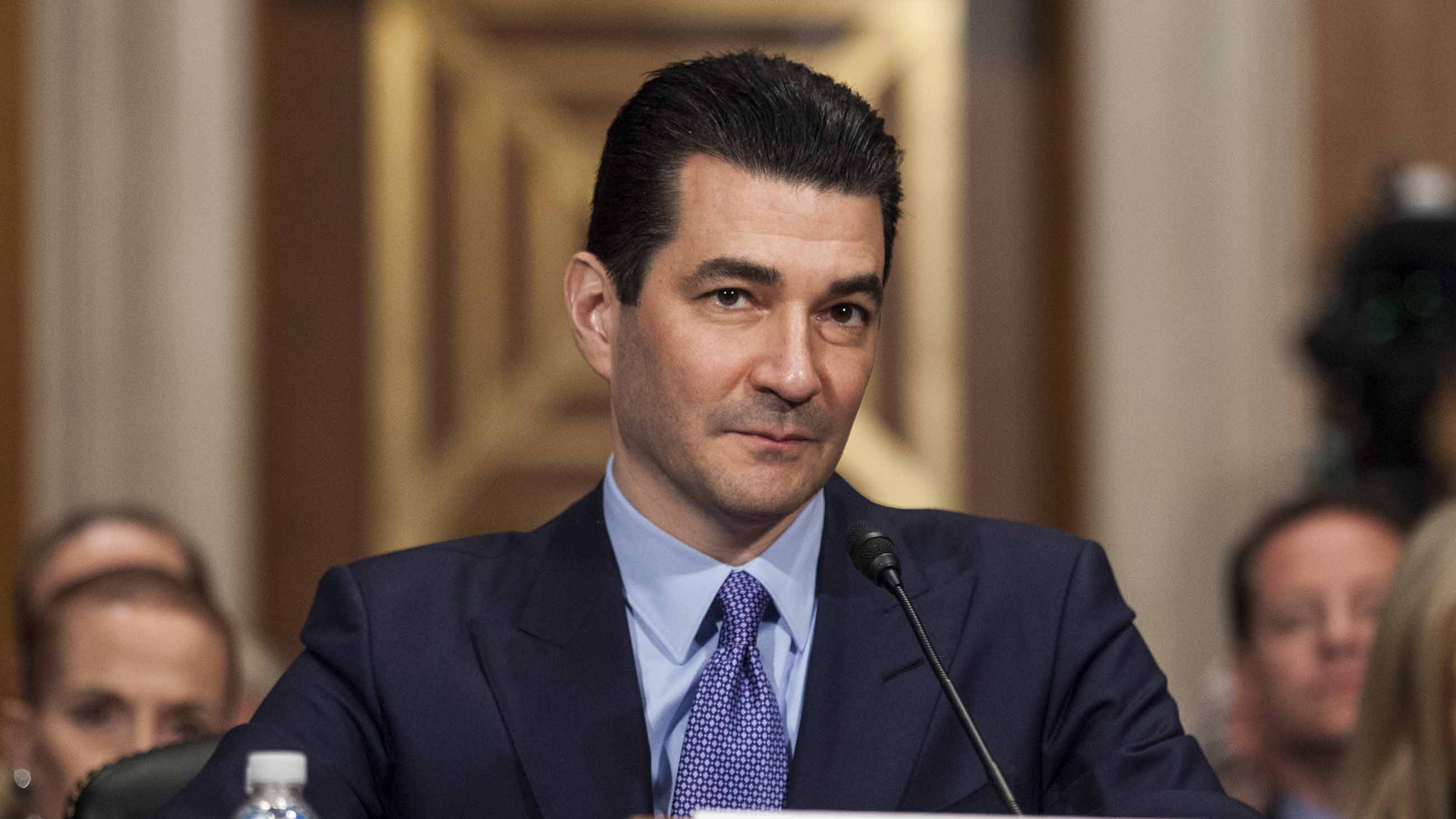Scott Gottlieb, Trump’s FDA Pick, Talks a Good Game

President Donald Trump could get more than he bargained for with his nominee for commissioner of the Food and Drug Administration, should Scott Gottlieb be confirmed by the Senate.
Gottlieb is a physician, policy analyst and investor with a dizzying number of business ties to the medical and health-related industries that his agency would oversee. Concerns about conflicts of interest were the focus of many questions during his confirmation hearing Wednesday before the Senate Health, Education, Labor and Pensions Committee.
As part of an ethics compliance process, the nominee has agreed to resign from more than a dozen positions and divest from more than two dozen financial interests, Sen. Orrin Hatch, the Utah Republican, said at the hearing. And Gottlieb will recuse himself from some decisions, under additional directives from the Office of Government Ethics.
Gottlieb told the committee that he plans to run an impartial FDA guided by science and by the science-based judgment of agency staffers. That position already puts him at odds with the overall tone of the Trump administration. And beyond that, Gottlieb might unapologetically push back on some of Trump’s goals.
For instance, Gottlieb said he is committed to advocating for a strong FDA and for the staffing and resources that the agency, part of the Department of Health and Human Services, needs to evaluate the safety and efficacy of new drugs and medical devices. Meanwhile, the Trump budget proposes an 18 percent cut to HHS’s budget.
“I have been committed to making sure we have a very strong workforce at FDA,” said Gottlieb, who served as a deputy commissioner in the agency for two years at the end of the President George W. Bush administration. “I have spoken out about this and I will continue to speak about this issue.” Complex science these days requires more specialized talent at the same time that the agency faces a spate of retirements, he added.
In another anti-science move, Trump has threatened to convene a political commission to look into the invalidated connection between vaccines and autism. Gottlieb diplomatically noted parents’ concerns for their children, but called the vaccines hypothesis one of the most exhaustively studied issues in scientific history. “We’ve come to the point where we can accept ‘no’ for an answer on this question,” he said, “and come to the conclusion that there is no causal link between vaccines and autism.”
Gottlieb came across as forthright and fearlessly independent at times during the hearing. The Trump administration could push for accelerating the drug approval process at the expense of drug safety and effectiveness, said Sen. Patty Murray, a Washington Democrat, who then asked Gottlieb if he would defend a scientifically sound process for evaluating drugs.
“I haven’t been shy about mentioning my unvarnished advice,” Gottlieb replied. “I’m going to continue to offer people my very clear thoughts on what issues I am asked to apply them to.”
For all of this, Gottlieb also espouses some positions that are irresistible to Trump and much of his party, foremost being support for deregulation and opposition to the Affordable Care Act. During the two and half-hour hearing, he shaped the word “efficiency,” often a euphemism for layoffs and other reductions that can come at the expense of consumers, into many parts of speech. Everyone wants greater numbers of safe, effective, low-cost drugs brought to market as quickly as possible, but not at the expense of undermining drug safety and weakening the oversight role of the agency.
Senator Murray expressed other concerns. Gottlieb stands to profit from dozens of drugs that are currently undergoing testing in clinical trials, she noted. He is a partner at New Enterprise Associates (NEA), reportedly the largest venture capital firm in the world, with investments in close to 200 healthcare and pharmaceutical outfits. When Murray asked Gottlieb if he would recuse himself from all decisions involving NEA, he carefully replied that he would continue to have discussions as necessary with the Office of Government Ethics on additional steps he should take.
Gottlieb portrayed himself at times during the hearing as someone who will not put profits before patients. But the extent of his medical business ties along with views expressed in some of his recently published essays will likely make it hard for many stakeholders to trust that an FDA under Gottlieb will present a counterbalance to the Trump administration’s deregulatory zeal.
In one piece published last summer, Gottlieb praised the Paul Ryan health care plan that eventually morphed into last month’s roundly rebuked and ultimately withdrawn “Trumpcare” bill. What good are new wonder drugs, after all, if millions of people are left wondering how to afford them?









